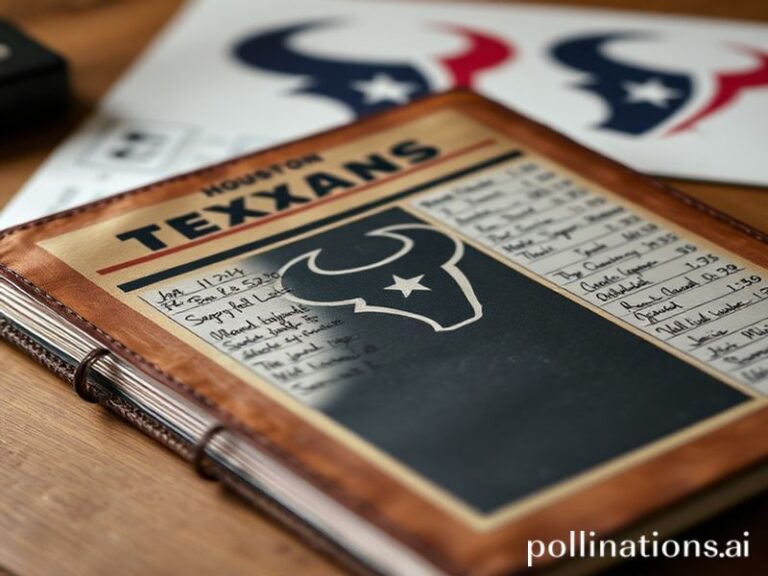From Wife Guy to Worldwide Warning: How Ned Fulmer’s Scandal Became the Planet’s New Parable
The Fall of the Try-Guys’ Golden Boy: Ned Fulmer’s Infidelity Scandal as Global Metaphor
By the time the news reached a jet-lagged crowd at a rooftop bar in Singapore, the bartender—an economics PhD moonlighting for fun—was already using Ned Fulmer’s implosion as shorthand for the West’s broader credibility crisis. “One minute you’re the wholesome ‘wife guy’ of BuzzFeed alumni fame,” he shrugged, “the next you’re Exhibit A in late-stage capitalism’s talent for self-immolation.” From the 28th floor, the Marina Bay Sands looked indestructible, a fitting contrast to a reputation detonating in 240-character increments across six continents.
For the uninitiated, Ned Fulmer was the khaki-clad human embodiment of millennial domesticity, one-fourth of the YouTube juggernaut “The Try Guys.” He built a brand on monogamy so aggressively Pinterest-board that even Scandinavian governments—world champions of work-life balance—took notes. Then, like an over-leveraged emerging market, the brand crashed: Fulmer admitted to a “consensual workplace relationship” with a subordinate, exit music courtesy of HR and the remaining Guys. Cue memes in fourteen languages and a collective shrug from nations where marital fidelity has been a punchline since the Renaissance.
Zoom out and the scandal becomes a geopolitical Rorschach test. In Seoul, where parasocial loyalty drives K-pop GDP, fans likened the betrayal to a rigged crypto rug-pull. In Paris—city of très sophisticated excuses—commentators diagnosed a classic American over-correction: build a man into a lifestyle deity, then burn him faster than a baguette in a cheap toaster oven. Meanwhile, Brazilian Twitter threads compared Try Guys LLC’s frantic rebranding to Bolsonaro’s last-ditch cabinet reshuffles: same desperation, fewer tanks.
The international business press, ever hungry for a morality tale with balance-sheet implications, noted that parent company 2nd Try LLC lost sponsors on three continents within 36 hours. A Tokyo-based analytics firm valued the reputational haircut at roughly $6.2 million, or one mid-tier anime franchise. Their report dryly observed that “brand authenticity” now behaves like the Turkish lira: everyone claims to believe in it until they absolutely don’t.
Diplomats stationed in Geneva have begun citing the scandal in soft-power seminars. The lesson: soft power itself now hinges on the same fragile algorithmic virality that catapulted a quartet of ex-BuzzFeeders to UN-adjacent fame. When the Italian delegation asked if this spelled doom for nation-branding campaigns, a Canadian delegate quipped, “Only if your head of state starts a podcast called ‘Try Diplomacy’.” Laughter, strained.
Human-resources departments from Nairobi to Stockholm are quietly rewriting codes of conduct, replacing boilerplate about “workplace relationships” with language so baroque it reads like the Geneva Conventions for Tinder. A Nairobi-based startup now offers “Infidelity Risk as a Service,” promising to flag wandering eyes via Slack sentiment analysis. Their sales deck features a cartoon Ned in a dunce cap; Series A funding closed last week.
Even the Vatican’s social-media team—yes, it exists—joined the pile-on, posting a cryptic Instagram reel about “idols of the hearth” set to Gregorian house music. The clip garnered 1.3 million views and at least one marriage proposal in the comments, proving that schadenfreude is the only truly universal language.
Yet beneath the snark lies a grimmer consensus: in an attention economy, intimacy itself has become a volatile asset. When your private life is the product, betrayal is not merely personal—it’s a supply-chain failure. Like microchips or natural gas, trust now ships just-in-time from whichever influencer offers the cheapest emotional subsidy. And when that trust is recalled, the recall notice is global, simultaneous, and merciless.
So as the Singaporean bartender pours another round, he raises a cynical toast: “To Ned Fulmer—may your next venture be as perfectly timed as the Ever Given.” The patrons clink glasses, because on a planet overheating in every sense, we all know the ship is still stuck; we’ve just moved on to the next meme. Somewhere in Los Angeles, a man who once monetized marital bliss is learning the oldest lesson in any market: you can diversify stocks, real estate, even passports—but you can’t hedge the human heart without eventually paying the spread.







